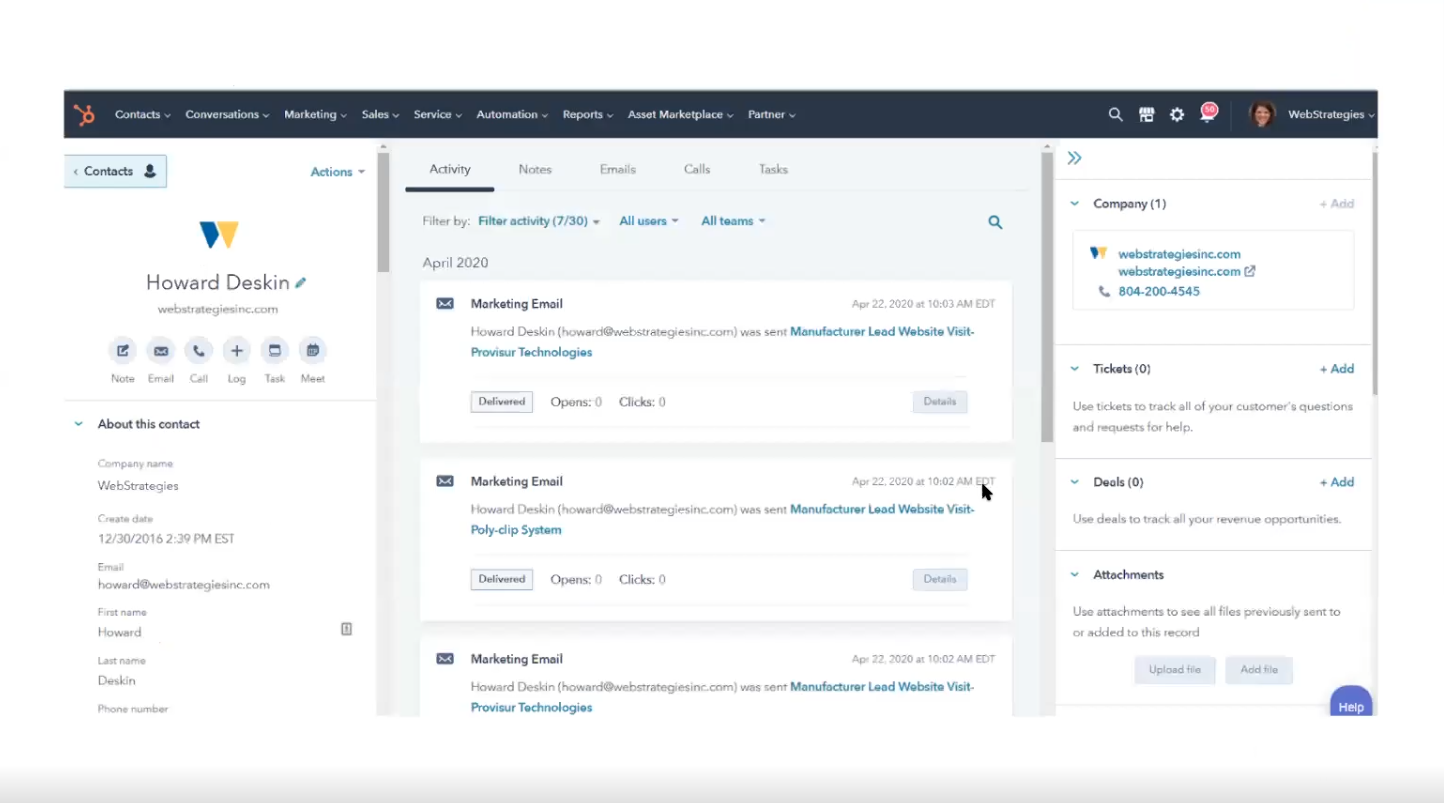If you are in the business of selling, then you are probably already aware of the commonly used digital tool referred to as a Customer Relationship Management (CRM) system.
However, you may be unaware of how powerful your CRM can actually be for your business.
Many manufacturers see their CRM as a repository for customer information (name, phone number, etc.), but a well-organized CRM can provide much more value than just collecting data.
What Does a CRM System Do?
In a basic sense, a CRM system allows you to keep logs on your prospects and customers so that you are always up-to-date on the communication they have received lately, and can cater your approach towards them appropriately.

A CRM system will make it easy to keep detailed notes on specific interactions that you may have with prospects or customers, including:
- Phone calls
- Emails
- Meetings
- Past purchases
- Future up-sell opportunities
All of this information can be easily accessed by anyone in your company who needs it so that your teams can create tailored strategies that are more personalized and provide your prospects with the information they need at the right time.
How a CRM Helps the Sales Process
A CRM can help your sales team operate more efficiently in various capacities, including the following:
- Communicate with leads: With information about previous communications and knowing where they are in the sales process, you can better communicate with leads
- Nurture leads: When leads aren’t ready to purchase, you can nurture them and follow up until they are. Your CRM will keep track of where they are in the process, past communication, and more, so you can personalize your lead nurturing
- Achieve better close rates: With a system behind your sales process and the data needed to implement a personalized communication and nurturing approach, you can expect higher close rates on average
- Close in less time: Along with higher overall close rates, a more effective sales system using a CRM solution as support can help you close on clients faster than expected
Integrating Sales and Marketing
Aside from being a database for prospect and customer information, a CRM system can act as a centralized hub for all of your marketing and sales activities.
When both marketing and sales teams use a CRM interchangeably, the potential for manufacturers to consistently generate new leads and close more sales grows exponentially.
For example, the contact behavior documented within your CRM can be used to segment your database into specific types of contacts. Each of these lists can receive different marketing messages depending on their actions with your company.
You could use these lists in combination with marketing automation to enter contacts into customized workflows, create individual email campaigns, or even run separate advertising campaigns based on the qualities of the prospects in your database.
Use Your CRM Correctly
Many companies in the manufacturing industry don’t use a CRM at all or aren’t using it correctly. Without a Customer Relationship Management system, you might struggle to maintain an organized system for your clients and potential clients. That leads to less personalized interactions and often a lower ROI, which is counterproductive as you strive to convert your prospects and increase profits.
Alternatively, some companies will have a CRM but aren’t using the system correctly. If you’re expecting the CRM to do all the work with no strategy behind the actions, you might be disappointed with the results. Another common mistake is not being properly trained on the ins and outs of the system before putting it into effect.
So, ultimately, as a manufacturing company, you want to ensure that you not only have a CRM but that you’re using it correctly.
Our Recommendations
There are dozens of Customer Relationship Management (CRM) systems on the market that your business can utilize, but not all of them have the same features.
At WebStrategies, our preference is HubSpot because it offers a very nice free CRM with a few marketing features built in, and it can be expanded into a very robust email marketing and marketing automation platform depending on the needs of the individual company using it. However, there are many other platforms such as Salesforce, Zoho, and Fresh Sales that are great for manufacturers and worth considering for your company.
If you are interested in learning more about how a CRM, and other digital tools, can help your business transition to digital-based marketing and sales strategy, watch our recent webinar on digital technology for manufacturing companies.





Agree, disagree, or just have something to add?
Leave a comment below.